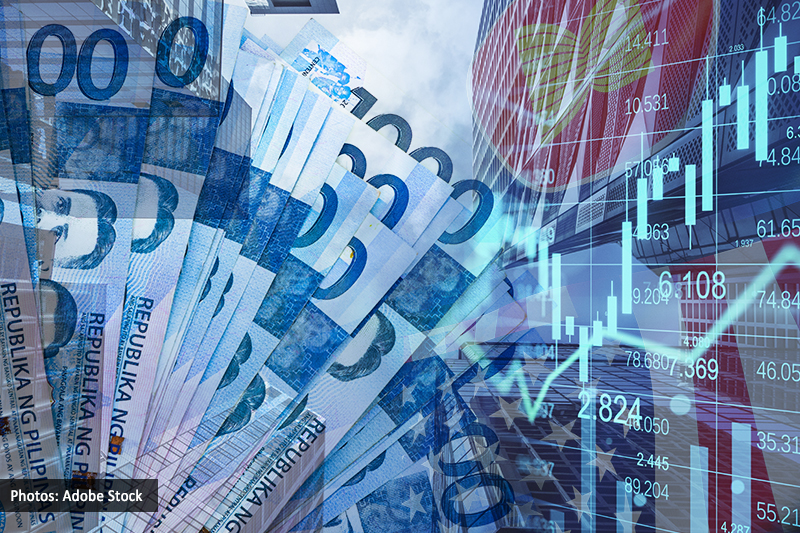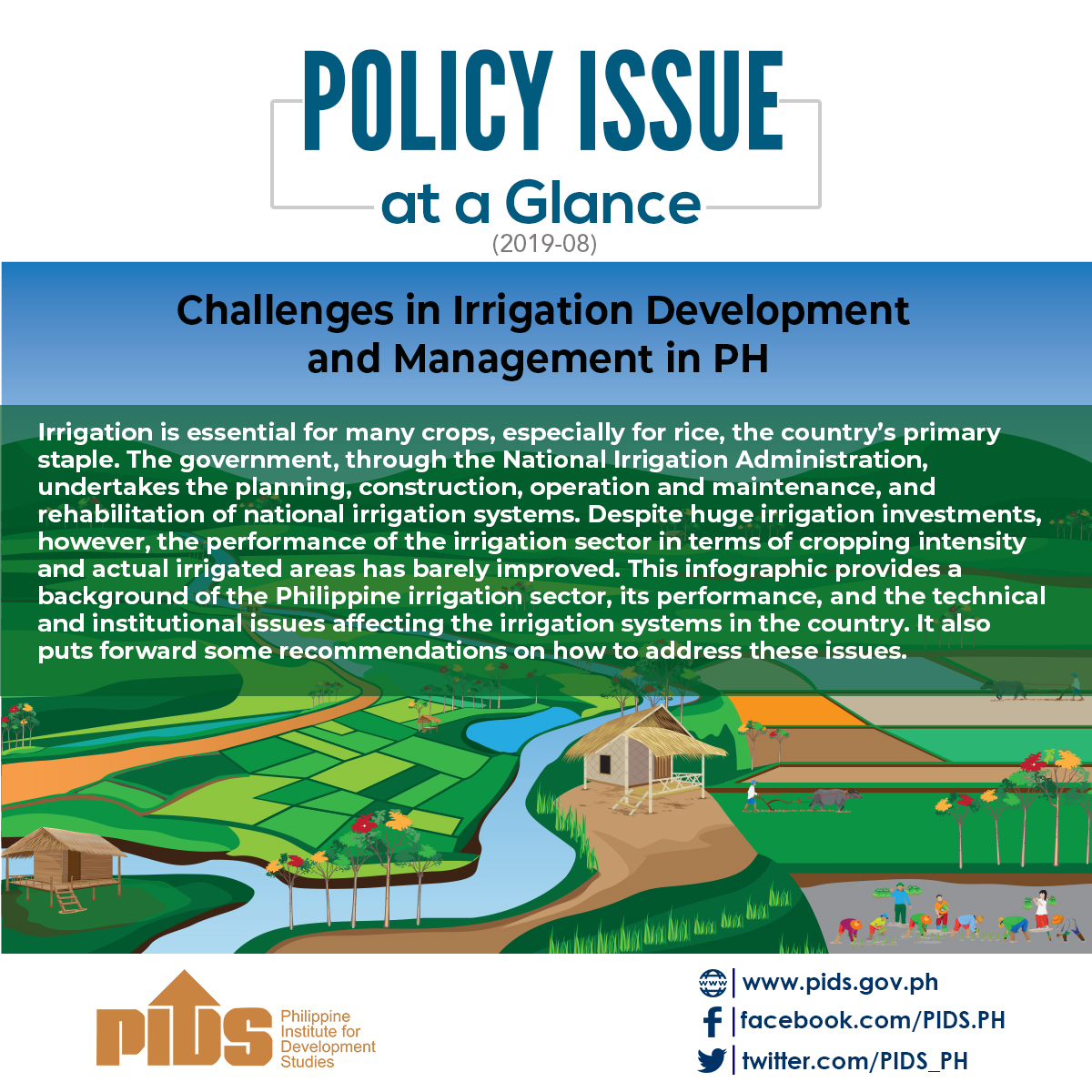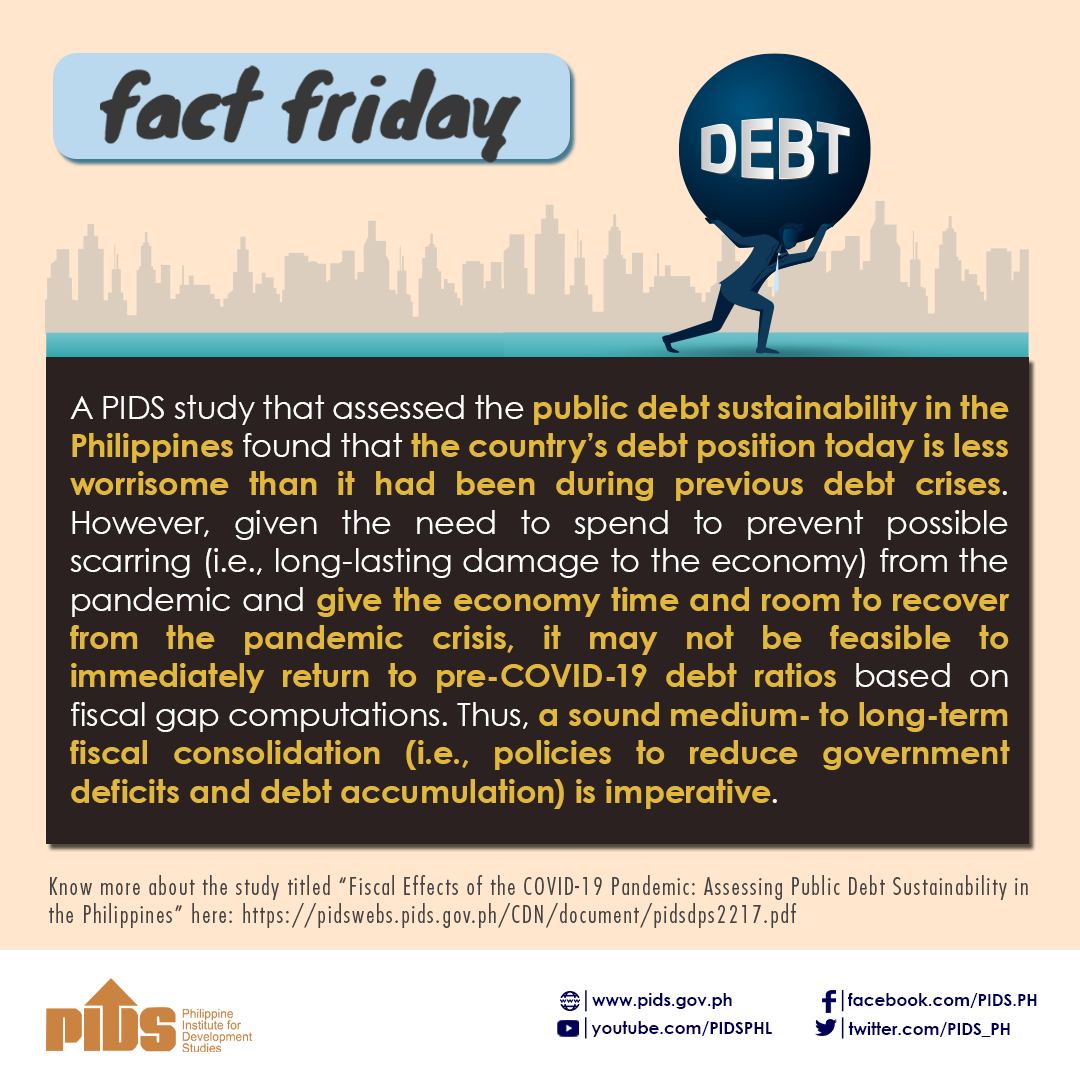STATE think-tank Philippine Institute for Development Studies (PIDS) said the country's most recent debt spike appears to be less concerning than previous debt episodes.
"This time it is different," said PIDS senior research fellow Margarita Debuque-Gonzales during a Wednesday briefing with Department of Finance officials and the media. Her statement is based on the main findings of a report she co-authored with Charlotte Justine Diokno-Sicat, John Paul Corpus, Robert Hector Palomar, Mark Gerald Ruiz and Ramona Maria Miral titled "Fiscal Effects of the Covid-19 Pandemic: Assessing Public Debt Sustainability in the Philippines."
The authors of the report published by PIDS, in collaboration with the Bangko Sentral ng Pilipinas, noted that the immediate effect of the Covid-19 pandemic on fiscal performance was a collapse of revenues due to a shrinking economy, an inevitable widening of the fiscal deficit as the revenue drop coincided with increased spending, and eventually a sharp accumulation of public debt. They underlined that the national government debt-to-gross domestic product (GDP) ratio increased from 39.6 percent in 2019 to 54.5 percent in 2020, and is presently at 60.5 percent in 2021.
Despite this, the authors said the recent debt spike is less worrisome because it is not the result of sharp interest rate shocks, excessive external debt, or the accumulation of hidden or non-budget deficits.
"It's not even about the tax effort being slowly whittled away like what happened in the mid-2000s. So really, this is just an exogenous Covid-19 shock that was a one-time escalation in spending and one-time increase in debt — the 20 percentage points in two years," Debuque-Gonzales emphasized.












